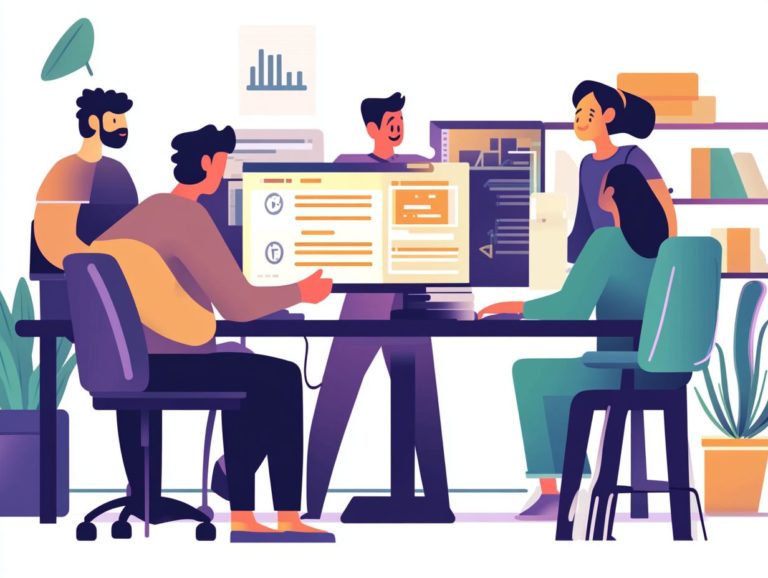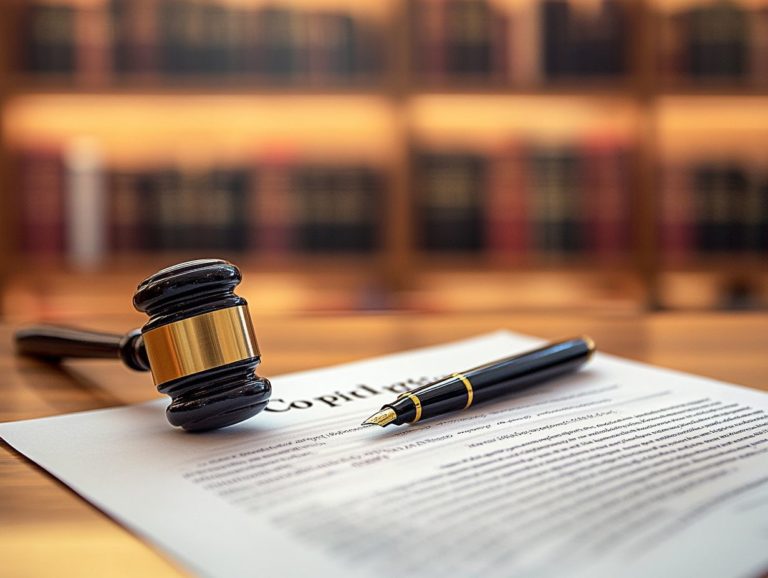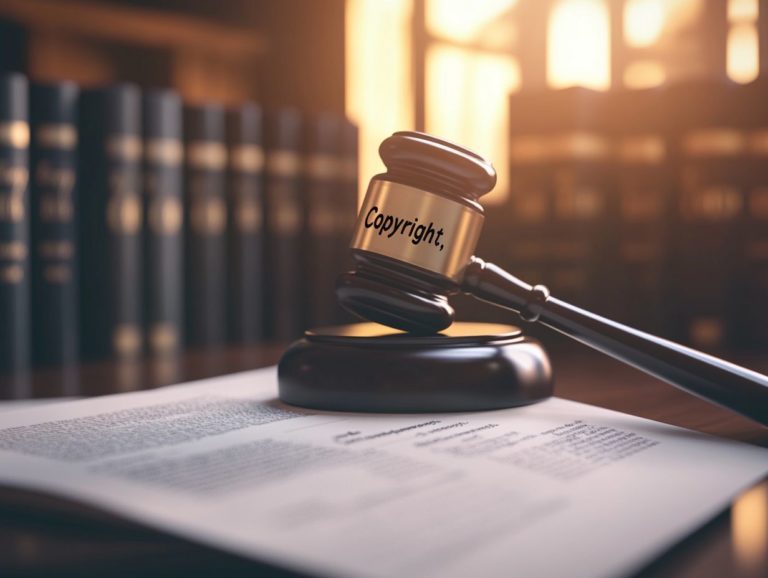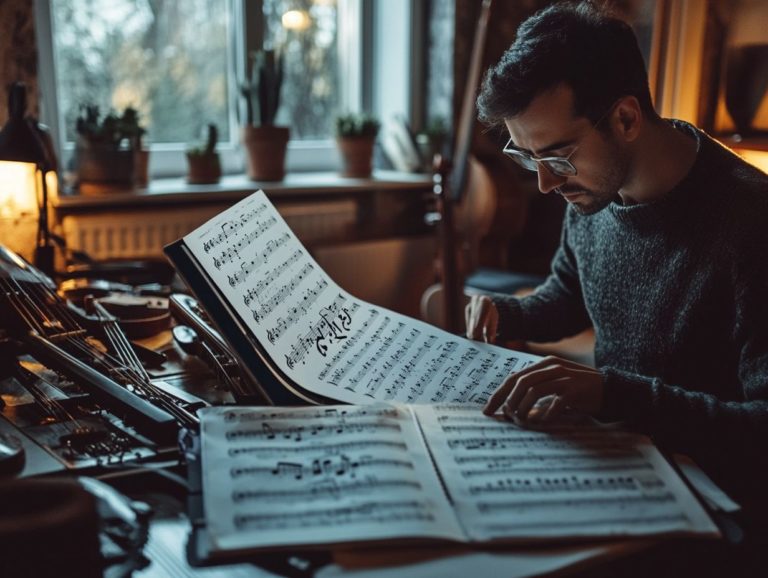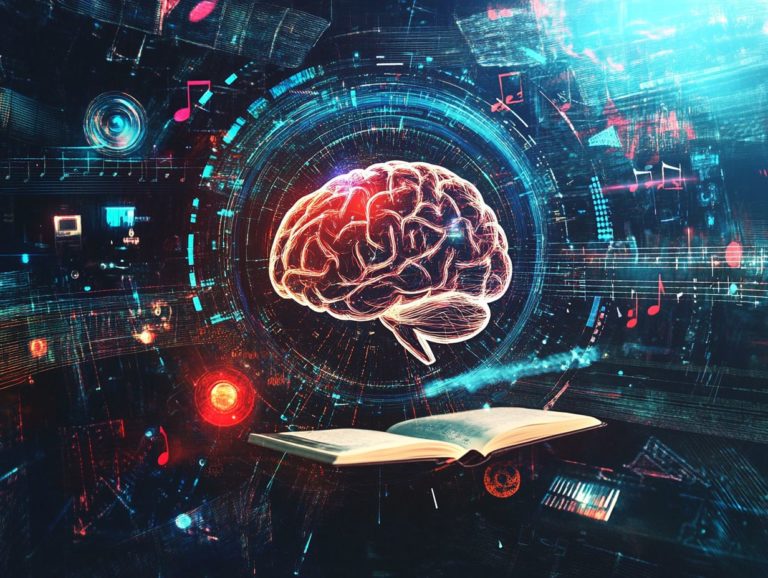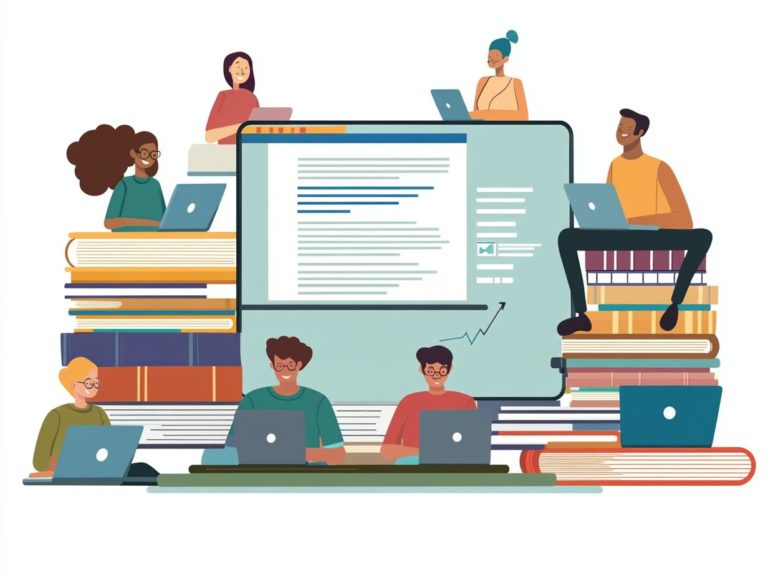The Role of Copyright in Video Game Development
Copyright is fundamental in video game development. It influences how you protect your legal rights related to creations while navigating intricate legal frameworks.
This article explores the essentials of copyright, helping you understand its relevance to games and identifying potential infringements and their repercussions.
It also provides exciting strategies to safeguard your creative gems and insights on collaborating harmoniously. Mastering these concepts is crucial for achieving success in this competitive industry, whether you’re a seasoned developer or just starting your journey.
Contents
- Key Takeaways:
- Understanding Copyright in Video Game Development
- Copyright Infringement in Video Games
- Safeguard Your Creative Genius!
- Navigating Copyright in Collaborative Game Development
- Frequently Asked Questions
- What is the role of copyright in video game development?
- How does copyright affect video game developers?
- What elements of a video game can be copyrighted?
- Can video game developers use copyrighted material in their games?
- How long does copyright protection last for video games?
- What can video game developers do to protect their copyright?
Key Takeaways:
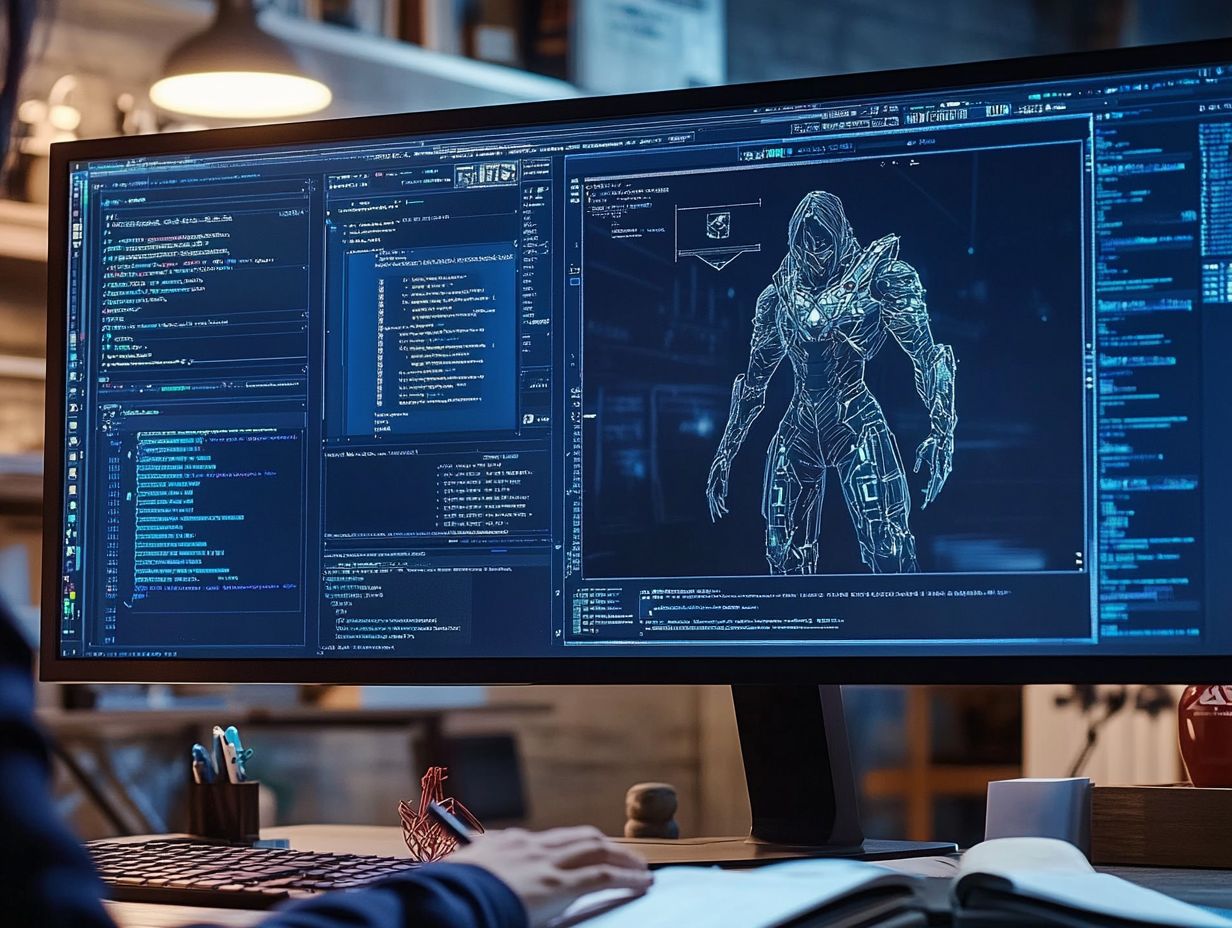
Copyright is crucial in video game development to protect original ideas and content. Copyright infringement can result in legal consequences and damage a developer’s reputation. To protect your game’s copyright, take steps such as registering your work and obtaining necessary permissions.
Understanding Copyright in Video Game Development
If you’re in the gaming industry, knowing copyright is a must! It covers various aspects of the legal rights related to creations that safeguard creative works such as game assets, characters, storylines, music, and artwork.
Copyright law provides a framework for securing your rights, allowing you to enter licensing agreements and defend your creations against unauthorized use. As the gaming industry evolves, grasping the nuances of copyright compliance becomes imperative for effectively navigating the legal landscape.
What is Copyright?
Copyright is a crucial pillar of intellectual property, granting you exclusive rights to your original creative works and safeguarding them against unauthorized use and reproduction.
This essential legal framework fosters innovation by providing robust protection for various expressions, from literature and music to art and software.
The primary aim of copyright is to protect your interests as a creator. It enables you to monetize your work while retaining control over its usage. It covers both published and unpublished creations, ensuring that artists and authors can truly reap the rewards of their labor.
Copyright bestows several rights upon you, including the ability to reproduce, distribute, and publicly display your work.
To thrive in the creative industries, grasping the intricacies of copyright law is vital. Important concepts like fair use (the ability to use a portion of someone else’s creative work under certain conditions) and derivative works (new creations based on existing ones) are essential for navigating potential legal challenges with confidence.
How Does it Apply to Video Games?
Copyright plays a vital role in video games by safeguarding various elements such as game assets, characters, storylines, music, and artwork. This legal framework ensures that you, as a game developer, retain rights to your creations, enabling effective distribution management.
It protects the unique visual styles and narratives you invest creativity into, as well as the audio components that elevate the gameplay experience. Consider how the iconic sound effects and theme music can be just as crucial to a game’s success as the gameplay mechanics themselves.
Copyright protections even extend to source code and programming techniques, allowing you to maintain a competitive edge in an increasingly crowded market.
In terms of digital distribution, effective copyright enforcement is paramount. It prevents unauthorized copying and distribution of games, ultimately fostering innovation and ensuring you can enjoy the rewards of your hard work.
Copyright Infringement in Video Games
Copyright infringement arises when developers or other parties utilize copyrighted materials without necessary permissions, violating the rights afforded by copyright law.
This misstep can lead to significant legal disputes and financial repercussions, putting both creativity and investment at risk. Understanding and respecting copyright not only protects you but also enhances the gaming industry as a whole.
Examples of Copyright Infringement in Video Games
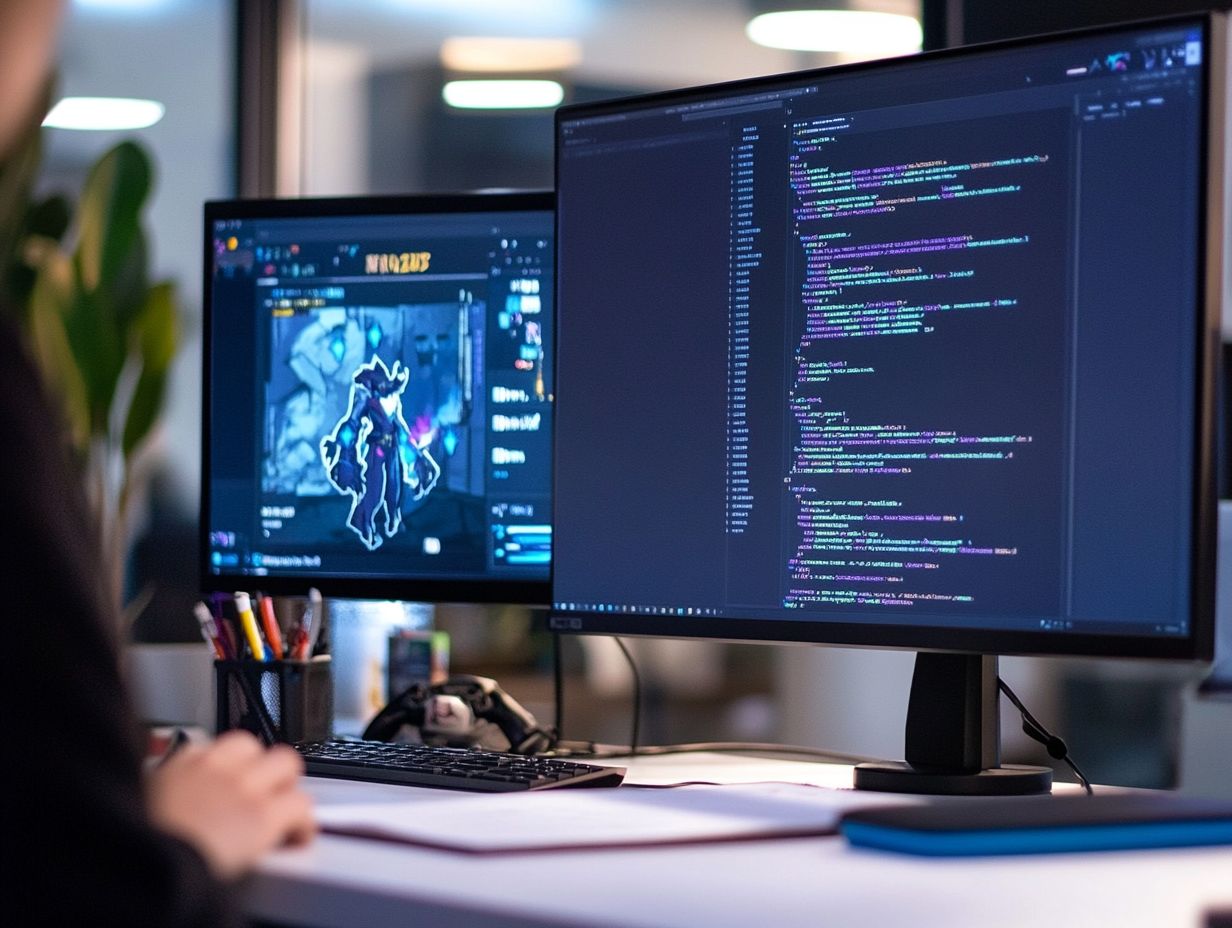
Copyright infringement in video games can take many forms, including unauthorized modifications, the use of copyrighted game assets in user-generated content, and the replication of game mechanics or storylines without consent from the original developers.
These infringements often range from fan-made mods that incorporate original soundtracks and character designs to instances where entire games closely mimic well-known titles.
Consider the notable legal actions taken by Nintendo against developers using their beloved characters and settings in fan creations, especially the lawsuits against developers of ROM sites.
With the rise of online gaming communities and platforms that empower users to create and share their content, the line between homage and infringement becomes increasingly blurred. This creates potential legal challenges.
The evolving landscape of user-generated content continuously tests copyright laws, forcing game companies to navigate these complexities with caution.
Consequences of Copyright Infringement
The consequences of copyright infringement can be severe. They may include statutory damages, legal battles, and significant financial losses for both you and the affected game developers.
These repercussions extend beyond immediate monetary fines; they can also involve lengthy litigation processes that drain your resources and distract you from core business activities.
The threat of litigation can deter potential investors and stifle future collaborations, limiting your growth opportunities.
Financial penalties can escalate quickly with statutory damages, often varying significantly based on the extent of the infringement.
If you are navigating this complex legal landscape, seeking professional legal advice is essential. By ensuring compliance with copyright laws, you not only protect yourself from these risks but also contribute to a fair and respectful creative environment in the industry.
Safeguard Your Creative Genius!
Protecting your video game’s copyright is crucial for securing your intellectual property. You can achieve this through various strategies, including copyright registration, legal agreements, and proactive compliance measures.
Steps to Take to Protect Your Copyright
As a game developer, there are several key steps to take to protect your copyright:
- Register your works with the relevant copyright office to establish a legal record.
- Secure legal agreements with collaborators to clarify ownership and terms regarding use, distribution, and profit-sharing.
- Implement digital rights management (DRM) technologies to control how your game can be used and shared.
Each step is essential in safeguarding both your creative and financial investments in game development. Incorporating DRM technologies enhances overall security and profitability, emphasizing the necessity of protecting your intellectual property in today s competitive industry.
Your Essential Guide to Copyright Protection Options
Game developers have various legal avenues for copyright protection. This includes seeking expert legal advice, exploring licensing agreements, and understanding compliance laws that dictate copyright usage.
Navigating the complex world of copyright may feel overwhelming, but it s essential to understand your options. Collaborating with seasoned legal counsel helps craft solid licensing agreements and ensures compliance with relevant regulations.
This legal expertise is invaluable for protecting your original content and minimizing infringement risk, allowing you to focus on your creative pursuits.
By thoroughly addressing copyright compliance, you can safeguard your intellectual property and maintain a competitive edge in the ever-evolving gaming industry.
Are you doing everything you can to protect your creative work?
Consider seeking legal advice or registering your games to enhance your protection.
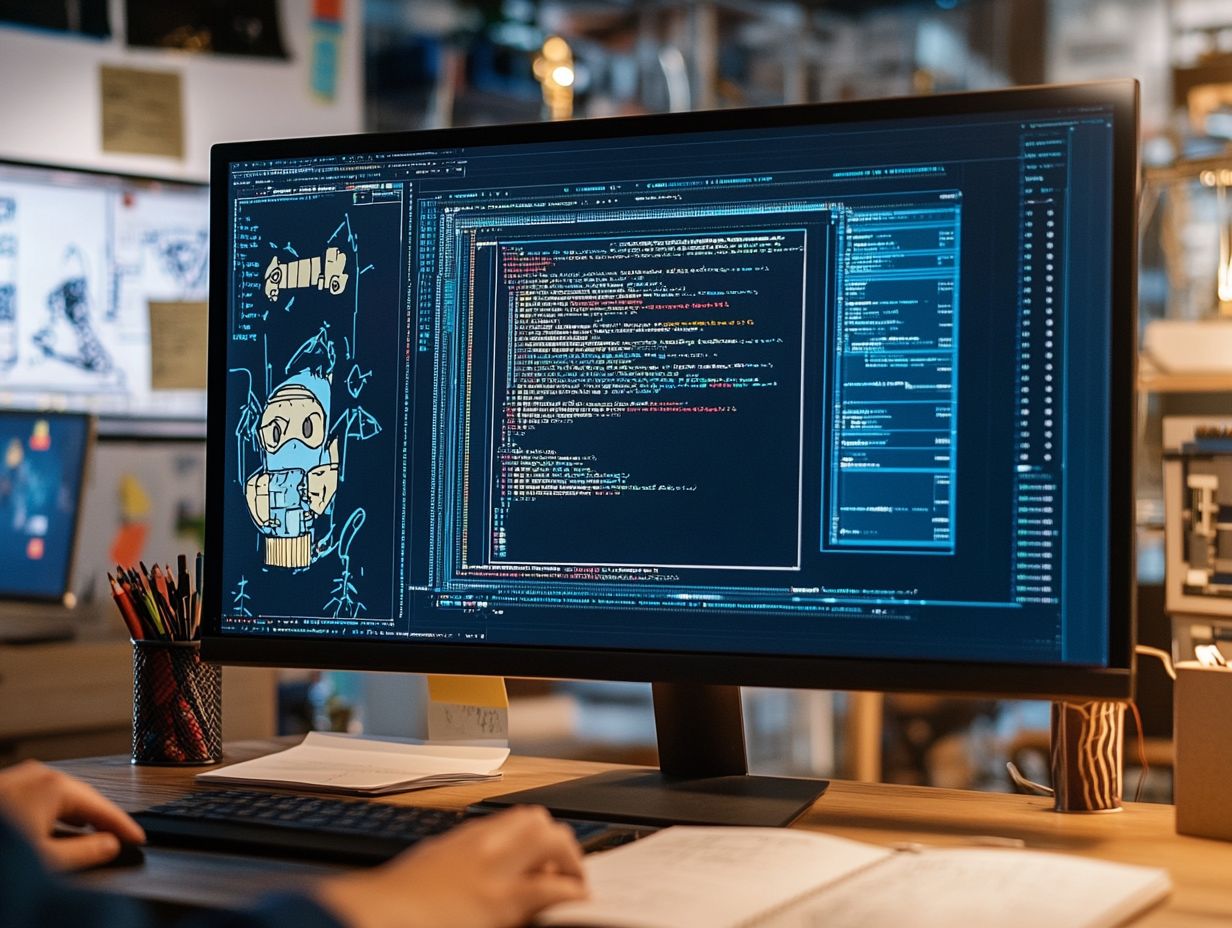
Navigating copyright in collaborative game development poses distinct challenges for you as a game developer. Establishing clear copyright ownership and rights among your team members, including both independent contractors and employees, is essential.
How Copyright Applies to Collaborative Projects
In collaborative projects, copyright regulations include the work of all game developers. Legal agreements are necessary to clearly define ownership rights and protect creative expression.
These agreements detail how each individual’s work will receive proper credit. They also address what happens if disputes arise, nurturing a cooperative atmosphere. This is especially crucial in the gaming industry, where diverse talents come together to craft innovative narratives and striking visuals.
Establishing clear protocols for copyright and royalty distribution empowers everyone involved. They can contribute freely, confident that their ideas and efforts are legally protected.
Understanding copyright laws is vital. It ensures that collaborators do not inadvertently infringe upon existing works or compromise the integrity of their joint project.
Tips for Avoiding Copyright Disputes
To steer clear of copyright disputes, implement proactive strategies. Establish clear legal agreements, understand copyright protection, and adhere to compliance laws.
By taking these steps, you safeguard your creative work and foster healthy partnerships with collaborators. Clearly defining usage rights in contracts ensures everyone understands their responsibilities.
Regularly reviewing these agreements helps keep them aligned with evolving copyright laws. This minimizes potential misunderstandings.
Be proactive! Stay updated on fair use policies to safeguard your creations. Seek legal counsel whenever uncertainty arises to solidify your position and minimize risks associated with intellectual property infringements.
Frequently Asked Questions
What is the role of copyright in video game development?
Copyright is a legal protection that grants exclusive rights to the creators of original works, including video games. In the context of video game development, copyright ensures that creators have the sole rights to distribute, reproduce, and profit from their game.
How does copyright affect video game developers?
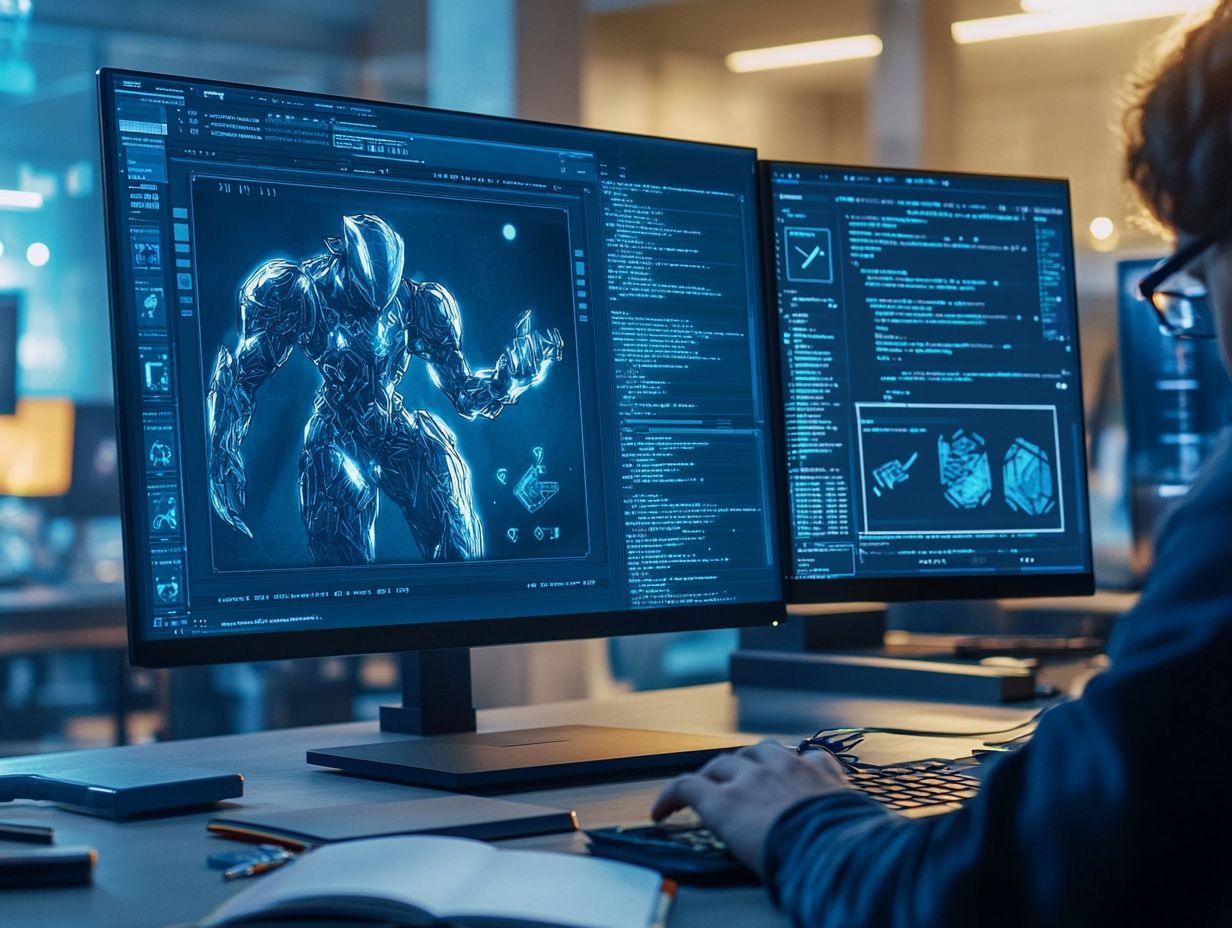
Copyright gives video game developers the legal right to protect their intellectual property and profit from their creations. It also allows them to take legal action against anyone who uses their game without permission or violates their copyright.
What elements of a video game can be copyrighted?
In video game development, any original and creative elements can be copyrighted. This includes the storyline, characters, graphics, music, and code. However, ideas, concepts, and game mechanics cannot be copyrighted; only the specific expression of these ideas can be protected.
Can video game developers use copyrighted material in their games?
Video game developers must obtain permission or a license to use copyrighted material in their games. This includes music, images, or characters from other games. Failure to obtain permission can result in copyright infringement and legal consequences.
How long does copyright protection last for video games?
In most countries, copyright protection for video games lasts for the life of the creator plus 70 years after their death. After this period, the game falls into the public domain and can be used by anyone without permission or payment.
What can video game developers do to protect their copyright?
To protect their copyright, video game developers can register their game with the copyright office in their country. They can also include copyright notices in their game and use digital rights management (DRM) tools to prevent unauthorized use or distribution of their game.

